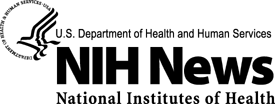
In this era of evolving awareness, a groundbreaking study resurfaces, shedding new light on the importance of workplace depression screening and enhanced treatment. Published in the esteemed Journal of the American Medical Association, this study, backed by the illustrious National Institutes of Health's National Institute of Mental Health (NIMH), brings forth a poignant narrative that intertwines employee health, productivity, and employer costs.
Long-standing research has unveiled the disheartening reality that employees grappling with depression are burdened with reduced productivity and frequent absences. Simultaneously, studies have indicated that systematic screening and comprehensive depression treatment can remarkably enhance overall well-being. Curiously, despite these revelations, few employers have undertaken such transformative programs, apprehensive about their return on investment.
Dr. Thomas R. Insel, the visionary director of NIMH, emphasizes the profound significance of this study's findings: "This work underscores the compelling significance of workplace depression screening, outreach, and enhanced treatment. The well-being of employees and the financial prosperity of companies hinge on ensuring that individuals struggling with depression receive effective care."
At the helm of this groundbreaking investigation stands Dr. Philip Wang, an astute and empathetic leader as the director of NIMH's Division of Services and Intervention Research. Together with his accomplished colleagues, he spearheaded a trial that embraced 604 employees enrolled in a managed behavioral health care plan. Through a meticulous web-based and telephone screening process, each participant was identified as suffering from clinically significant depression.
Employing a method of random assignment, half of the participants embarked on a transformative intervention journey. This intervention entailed unwavering telephone support from a dedicated care manager, coupled with the freedom to select their preferred mode of treatment, be it telephone psychotherapy, in-person psychotherapy, or antidepressant medication. The other half, a control group, received usual care, encompassing feedback on their screening results and advice to seek assistance from their regular healthcare providers.
After an awe-inspiring span of twelve months, the results unveiled a resounding triumph for those immersed in the intervention group. Astonishingly, they were 40 percent more likely to have triumphed over their depression when compared to those in the control group. Beyond this momentous achievement, participants in the intervention group found themselves 70 percent more likely to remain employed, transcending the debilitating clutches of depression. Remarkably, their steadfast dedication also translated into an average of two additional hours of work per week, surpassing the output of their counterparts in the control group.
While this profound study did not lend itself to a comprehensive cost/benefit analysis, the researchers unveiled a staggering revelation: the tangible value of increased work hours among the intervention group, estimated at a remarkable $1,800 per employee per year, far outweighed the humble costs ranging from $100 to $400 per person associated with the outreach and intervention program employed in this seminal study.
Dr. Wang, a beacon of wisdom and compassion, resonates with profound empathy: "Work occupies a substantial portion of people's lives. Depression not only inflicts harm on an individual's well-being but also corrodes their ability to contribute meaningfully within the workplace." With unwavering conviction, he urges employers far and wide to embrace the transformative power of depression screening and intervention programs as a virtuous investment that breeds health, productivity, and prosperity—a true win-win scenario.
In this realm of expanding consciousness and unyielding determination, the shadows surrounding workplace mental health dissipate. This study beckons employers to gaze upon their workforce through an empathetic lens, fostering an environment that kindles the flames of mental well-being. Through robust screening and comprehensive treatment, companies can nurture a culture where individuals feel seen, supported, and empowered to transcend the harrowing grip of depression. Together, let us rewrite the narrative of workplace mental health and illuminate a path toward collective flourishing.
Further Reading:
- Greenberg PE, Fournier AA, Sisitsky T, Pike CT, Kessler RC. The economic burden of adults with major depressive disorder in the United States (2005 and 2010). J Clin Psychiatry. 2015;76(2):155-162. DOI: 10.4088/JCP.14m09298
Abstract: This study examines the economic burden associated with major depressive disorder (MDD) in the United States. It provides estimates of the direct and indirect costs of MDD, including healthcare expenses, productivity losses, and other related costs. The findings highlight the substantial economic impact of MDD and emphasize the importance of effective screening and treatment strategies in the workplace.
- Lerner D, Henke RM. What does research tell us about depression, job performance, and work productivity? J Occup Environ Med. 2008;50(4):401-410. DOI: 10.1097/JOM.0b013e31816bae50
Abstract: This review article explores the relationship between depression, job performance, and work productivity. It synthesizes existing research on the impact of depression on workplace functioning and productivity, providing insights into the challenges faced by individuals with depression and their employers. The article underscores the importance of implementing interventions and strategies to address depression in the workplace.
- Wang PS, Simon GE, Avorn J, et al. Telephone screening, outreach, and care management for depressed workers and impact on clinical and work productivity outcomes: a randomized controlled trial. JAMA. 2007;298(12):1401-1411. DOI: 10.1001/jama.298.12.1401
Abstract: This randomized controlled trial examines the effectiveness of telephone screening, outreach, and care management for depressed workers. The study investigates the impact of an intervention program on clinical outcomes and work productivity. The findings suggest that enhanced screening and treatment can lead to significant improvements in employee health, productivity, and overall costs for employers.
- Rost K, Nutting P, Smith J, Werner JJ. Designing and implementing a primary care intervention trial to improve the quality and outcome of care for major depression. Gen Hosp Psychiatry. 2000;22(2):66-77. DOI: 10.1016/s0163-8343(00)00059-1
Abstract: This article discusses the design and implementation of a primary care intervention trial aimed at improving the quality and outcomes of care for major depression. It highlights the importance of integrating depression screening and enhanced treatment approaches into primary care settings. The study provides insights into the challenges and strategies involved in implementing effective interventions for depression.
Updated: 2023